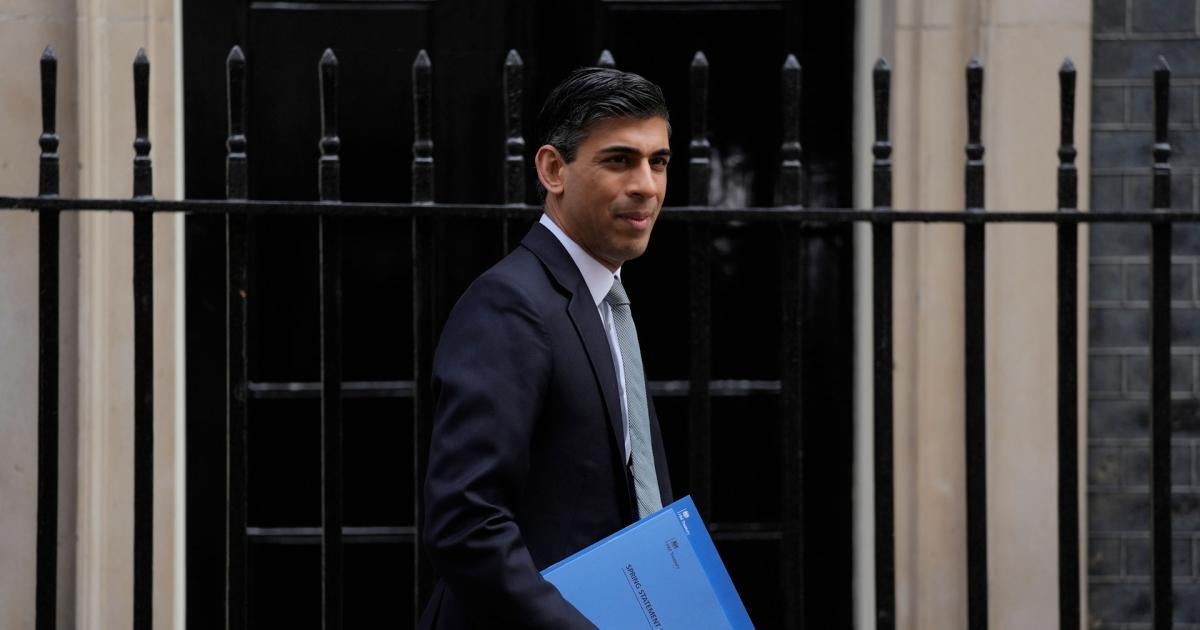UK Government Fails Low-Income Households
This week could have seen the United Kingdom government finally take steps to address the negative impact of the cost of living crisis on families on low incomes.

But the plans set out on March 23 by finance minister Rishi Sunak will leave people on the lowest incomes worse off, just as prices of food and energy prices soar. While Sunak claims, “We are helping families with the cost of living,” these measures won’t do that for the least well off. Instead, they just paper over the cracks of over a decade of social security cuts. Official predictions estimate that inflation will rise between 7 and 9 percent this year. But rather than raising social security benefits commensurately, the government seems set on a real-terms cut to support. A number of organizations, including Human Rights Watch, previously warned that if social security support does not keep pace with inflation, it puts at risk the basic human rights – to social security, food, a decent standard of living – of people on the lowest incomes. This decision is the second effective cut in support in less than six months. Last October, the government cut a March 2020 social security increase despite food banks, debt advice organizations, mental health support groups, and anti-poverty advocates sounding alarm bells over the harm it would cause. Other measures in this week’s announcement, that the government is touting as major improvements, are unlikely to help low-income households. An increase in the income threshold from which point people start to pay social security contributions also won’t help the least well off. It will make no difference to older people reliant on state pensions, who see no increase in support and don’t benefit from this new threshold. An announced £500 million contribution to local authorities to ensure grants for emergency support is miniscule after a decade of cuts to such support. And regardless, one-off discretionary handouts are no substitute for fair social security rates. A fuel duty cut set to last a year is bad climate policy. Plus, the least well off are less likely to own cars and therefore less likely to benefit. This was a moment for a bold effort to bolster the UK’s social security system and ensure the basic rights of people on the lowest incomes. By that yardstick, these measures fall well short of what is needed..
Read the full article at the original website
References:
- https://www.instituteforgovernment.org.uk/explainers/cost-living-crisis
- https://www.gov.uk/government/speeches/spring-statement-2022-speech
- https://inews.co.uk/news/cost-of-living-crisis-shop-prices-rise-fastest-rate-fresh-food-costs-1493427
- https://www.theguardian.com/business/2022/mar/23/food-bank-users-declining-potatoes-as-cooking-costs-too-high-says-iceland-boss
- https://www.hrw.org/news/2019/05/20/uk-welfare-cuts-mean-families-go-hungry
- https://obr.uk/overview-of-the-march-2022-economic-and-fiscal-outlook/
- https://cpag.org.uk/news-blogs/news-listings/organisations-call-for-minimum-7-benefits-rise
- https://www.hrw.org/news/2021/09/03/human-rights-watch-letter-uk-parliamentarians-regarding-impending-cut-social
- https://www.theguardian.com/commentisfree/2021/oct/03/after-years-of-cruelty-to-people-on-welfare-is-the-uk-starting-to-think-differently
- https://www.jrf.org.uk/press/keep-the-lifeline-open-letter-to-the-prime-minister
- https://www.jrf.org.uk/press/600000-will-be-pulled-poverty-result-chancellors-inaction
- https://www.pensions-expert.com/Law-Regulation/What-the-Spring-Statement-means-for-pensions?ct=true
- https://www.theguardian.com/society/2017/sep/13/english-councils-local-welfare-schemes-meltdown
- https://www.carbonbrief.org/analysis-fuel-duty-freeze-has-increased-uk-co2-emissions-by-up-to-5-per-cent
- https://www.ons.gov.uk/peoplepopulationandcommunity/personalandhouseholdfinances/expenditure/datasets/percentageofhouseholdswithcarsbyincomegrouptenureandhouseholdcompositionuktablea47
